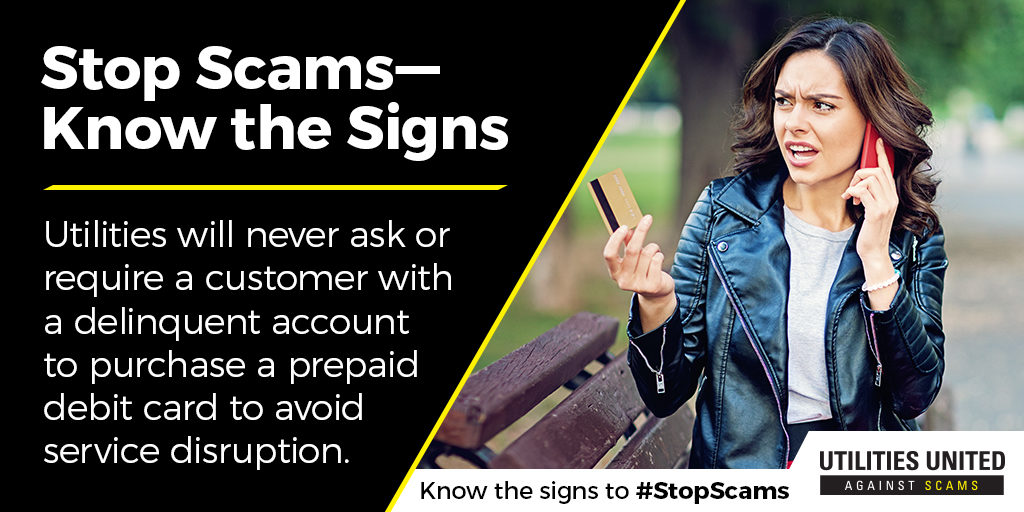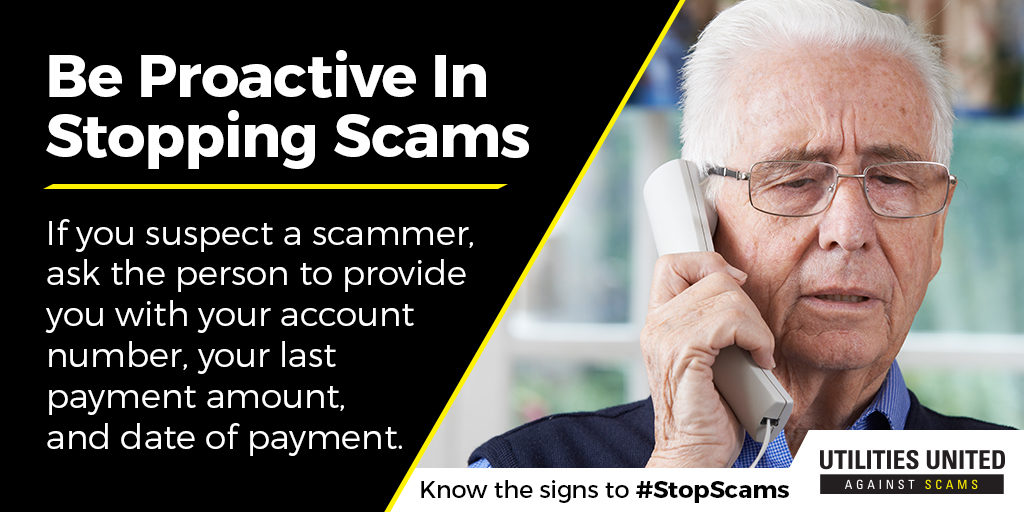
Far too many electric co-ops have heard a story along these lines.
The member says someone from the co-op called warning their bill was past due and the electricity would soon be turned off. To keep the lights on, the member went to the drugstore, bought the prepaid debit card that the guy on the phone said to get, then called the guy back and gave him the card number.
So how could they possibly still owe the co-op money?
No co-op—or any other utility, for that matter—would ever make such a demand. The only people who do that are scammers.
It angers the utilities as much as the victims, which is why co-ops, investor-owned companies and municipals are banding together for Utility Scam Awareness Week, Nov. 13-17. It includes the second annual Utilities United Against Scams Day on Nov. 15. The goal is to raise consumer awareness of how scammers work.
The event is organized by Utilities United Against Scams (UUAS), a group consisting of more than 100 utilities and related organizations, including NRECA.
UUAS members routinely share content for ads, social media, and other forums—all of it available for free. And while it’s often created by bigger utilities with lots of resources, the material is generic, so there’s no utility name on it.
“It’s a good way for smaller organizations that don’t necessarily have the marketing budget, the communications resources, or the individual lobbying presence to get things done,” said Jared Lawrence, vice president of revenue services at Duke Energy and a leader of UUAS.

For this year’s UUAS Day, the group has created a wealth of materials including suggested Facebook and Twitter posts which can be used with the hashtag #StopScams.
There’s also a new “Consumer’s Guide to Impostor Utility Scams,” which can be downloaded from the UUAS website by community leaders, who, in turn, can share the information everywhere from workplaces to houses of worship. The 36 page guide covers some of the many types of scams to watch out for, and tips to avoid becoming a victim.
If your co-op isn’t a member of UUAS it’s welcome to join. Information is on the UUAS website.
“It’s free, and the level of involvement is purely voluntary,” said Lawrence. “We’d love to have as many utilities at the table, helping to shape the messages, identify trends and best practices, and basically become better as an industry.”
You can read more about scams in November’s RE Magazine.
Michael W. Kahn is a staff writer at NRECA.